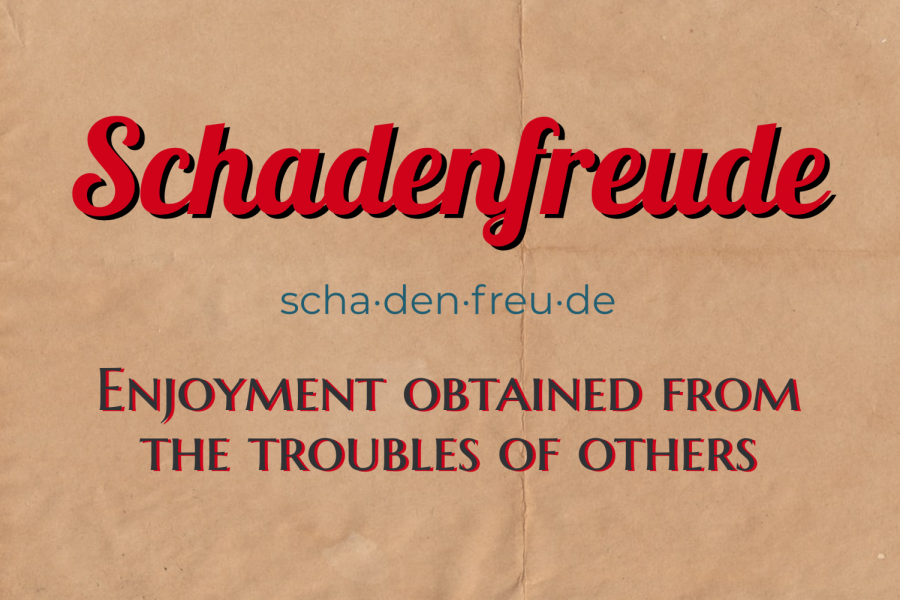The dangers of schadenfreude in the era of COVID-19
Schadenfreude is the enjoyment obtained from the troubles of others. During this pandemic, it can be dangerous.
May 4, 2020
A few weeks ago, a text from one of my friends interrupted my daily quarantine routine of watching Netflix and playing Xbox: “Harvey Weinstein got Corona. That’s good news.” Immediately, other people in the group chat began to celebrate Weinstein’s diagnosis.
This wasn’t the first time I’d seen people celebrate when notable figures tested positive, or potentially so, for COVID-19. Earlier that same day, countless individuals on Twitter celebrated when Senator Rand Paul (R-Kentucky), the only senator who voted against the first COVID-19 aid package that would’ve provided all Americans with free COVID-19 testing, contracted the illness.
Even President Donald Trump seemed smug and sarcastic after he learned that Senator Mitt Romney, the only Republican senator to find Trump guilty in his impeachment trial, was quarantining himself because he had been in contact with someone who tested positive for COVID-19.
Instances like these represent our society’s inclination toward “schadenfreude,” or the derivation of joy from other peoples’ misfortune or pain. But during these challenging, unprecedented times, we have to be conscious of schadenfreude and do what we can to reduce it — both in ourselves and those around us. If we want to beat this virus, we have to set aside our differences and come together as a society.
COVID-19 isn’t just like the flu. It’s an infectious, deadly disease. Most people can’t, and don’t, shake it off in a few days. Weinstein, Paul and Romney are all certainly not perfect, but none of them “deserve” their diagnoses.
As divisive as Weinstein, Paul and Romney may be, they still all have families and people who care about them. Paul, for instance, has three children, and Romney has five children and two grandchildren. These families are already facing an immeasurable burden, and we shouldn’t add to that.
Instead of cheering on the virus, we should be doing whatever we can to support our fellow Americans — no matter their race, ethnicity, religion, personal history or political ideology. We can show compassion for those around us, give others words of support on social media instead of attacking them, and try to recognize the serious consequences that can come from contracting this illness.
Of course, showing kindness and acknowledging our own schadenfreude certainly won’t be a cure-all. We still need to practice social distancing and wash our hands often, but by reducing schadenfreude, we can create a more supportive society — which is something that could benefit everyone right now. If our political opponents or actors we dislike are diagnosed with COVID-19, we should put ourselves in their place and consider the emotional and physical toll they’re experiencing.
While we do see some schadenfreude, it’s also important to recognize that not all Americans support the notion. In fact, in the past few weeks, people have used their free time to convert old fabric into needed hospital masks, many distilleries have started to produce hand sanitizer instead of gin and whiskey, and numerous Marylanders have joined Maryland Unites, Governor Larry Hogan’s new program where volunteers help support at-risk individuals and fight COVID-19. These people are putting aside their differences and coming together to fight COVID-19 — and so can the rest of us.
This virus is a dream come true for schadenfreude enthusiasts; peoples’ political enemies are publicly suffering. However, we can’t let others’ suffering make us happy. We have to think about the common good; ideally, no one should become a victim of this virus. The quicker we become unified, the quicker we can end this pandemic.







